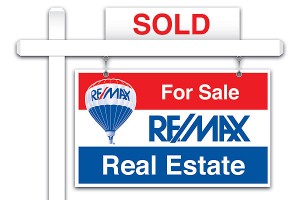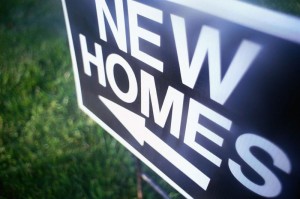 Get your home SOLD FAST for TOP DOLLAR! With these Phoenix home selling tips you will discover how to protect and capitalize on your most important investment, reduce stress, be in control of the situation and make the most profit possible.
Get your home SOLD FAST for TOP DOLLAR! With these Phoenix home selling tips you will discover how to protect and capitalize on your most important investment, reduce stress, be in control of the situation and make the most profit possible.
Know Why You Are Selling Your Home
Your motivation to sell is the determining factor as to how you will approach the sales process. It affects everything from your asking price to how much time, money and effort you’re willing to invest in order to prepare your home for sale. For example, if your goal is a quick sale, this would determine one approach. If you want to maximize your profit, the sales process might take longer thus dictating a different approach.
Keep the Reason You are Selling to Yourself
The reason(s) you are selling your home will affect the way you negotiate its sale. By keeping this to yourself you don’t provide ammunition to your prospective buyers. For example, should they learn that you must move quickly, you could be placed at a disadvantage during negotiations. If asked, simply say that your housing needs have changed. The reason(s) you are selling is only for you to know.
Do Your Homework Before Setting a Price
When you set your price, you make buyers aware of the absolute maximum they have to pay for your home. As a seller, you will want to get a selling price as close to the list price as possible. If you start out by pricing too high you run the risk of not being taken seriously by buyers and their agents. Pricing too low can obviously result in selling for much less than you were hoping for.
If You Live in a Subdivision: if your home is comprised of similar or identical floor plans, built in the same period, simply look at recent sales in your neighborhood subdivision to give you a good idea of what your home is worth.
If You Live in An Older Neighborhood: as neighborhoods change over time, each home may be different in substantial ways. Because of this, you will probably find there aren’t many homes truly comparable to your own. In this case, you may want to consider seeking a Realtor to help you with the pricing process.
If You Decide to Sell On Your Own: a good way to establish a value is to look at homes that have sold in your neighborhood within the past 3 to 6 months and including those currently for sale on the market. This is how prospective buyers will assess the value of your home.
Overwhelmed? Let me prepare a free home evaluation on your Phoenix home – with no obligation!
Do Some Home Shopping Yourself
The best way to learn about your competition and discover what turns buyers off is to check out other open houses. Note floor plans, condition, appearance, size of lot, location and other features. Particularly note the asking price. Remember, if you’re serious about getting your home sold fast, don’t price it higher than your neighbor’s.
When Getting an Appraisal is a Benefit
Sometimes a good appraisal can be a benefit in marketing your home. Getting an appraisal is a good way to let prospective buyers know that your home can be financed. However, an appraisal does cost money, has a limited life, and there’s no guarantee you’ll like the figure you see.
Tax Assessments – What They Really Mean
Some people think tax assessments are a way of evaluating a home. The difficulty here is that assessments are based on a number of criteria that may not be related to property values, so they do not reflect your home’s true value.
Deciding on a Realtor
According to the National Association of Realtors, 2 out of 3 people surveyed who sold their own homes say they wouldn’t do it again themselves. Primary reasons include difficulty setting a price, marketing disadvantages, liability concerns and time constraints. When deciding upon a Realtor, consider two or three. Be as wary of suggested list prices that are too low or too high. All Realtors are not the same! A professional knows the market and has information on past sales, current listings, a proven marketing plan and will provide client references. Evaluate each candidate carefully on the basis of their experience, qualifications, enthusiasm and personality. Be sure you choose someone that you trust.
Leave Room to Negotiate
Before settling on your asking price make sure you leave yourself enough room in which to bargain. For example, set your lowest and highest selling price. Then check your priorities to know if you’ll price higher to attempt to maximize your profit or price closer to true market value if you want sell more quickly.
Appearances Matter so Make them Count
Appearance is so critical that it would be unwise to ignore this when selling your home. The look and feel of your home will generate a greater emotional response than any other factor. Prospective buyers still react to what they see, hear, feel and smell even though you may have priced your home to sell.
Invite the Honest Opinions of Others
The biggest mistake you can make at this point is to rely solely on your own judgment. Don’t be shy about seeking the honest opinions of others. You need to be objective about your home’s good points as well as bad. Fortunately, your Realtor will be able to discuss what should be done to make your home more marketable.
Get it Spotless and Fix Everything
Scrub, tidy, straighten, lose the clutter, declare war on dust, repair squeaks and cracks, because these can be deal killers and you’ll never know what turns buyers off. Remember, you’re not just competing with other resale homes, but brand-new ones as well. Think of selling your home as a beauty contest and price war at the same time.
Allow Prospective Buyers to Visualize Themselves in Your Home
The last thing you want prospective buyers to feel when viewing your home is that they may be intruding into someone’s life. Avoid clutter such as too many knick-knacks and personal items. Decorate in neutral colors, like white or beige and place a few carefully chosen items to add warmth and character. You can enhance the attractiveness of your home with a well-placed vase of flowers in the kitchen or potpourri in the bathroom.
Strong Smells Must Go
You may not realize but smells like traces of food, pets and smoking odors can kill deals quickly. If prospective buyers know you have a dog, or that you smoke, they’ll start being aware of odors and seeing stains that may not even exist. Don’t leave any clues.
Be a Smart Seller by Disclosing Everything
Smart sellers are proactive in disclosing all known issues and defects to their buyers in writing. This can reduce liability and prevent lawsuits later on.
It’s Better With More Prospects
When you maximize your home’s marketability, you will most likely attract more than one prospective buyer. It is much better to have several buyers because they will compete with each other whereas a single buyer will end up competing with you.
Keep Emotions in Check During Negotiations
Let go of the emotion you’ve invested in your home. Be detached, using a business-like manner in your negotiations. You’ll definitely have an advantage over those who get caught up emotionally in the situation.
Learn Why Your Buyer is Motivated
The better you know your buyers the better you can use the negotiation process to your advantage. This allows you to control the pace and duration of the entire process. As a rule, buyers are looking to purchase the best affordable property for the least amount of money. Knowing what motivates them enables you to negotiate more effectively. For example, does your buyer need to move quickly? Armed with this information you are in a better position to bargain.
What the Buyer Can Really Pay
As soon as possible, try to learn the amount of mortgage the buyer is qualified to carry and how much their down payment is. If their offer is low, ask their Realtor about the buyer’s ability to pay what your home is worth.
Don’t Sign a Deal on Your Next Home Until You Sell Your Current Home
Beware of closing on your new home while you’re still making mortgage payments on the old one or you might end up becoming a seller who is eager (even desperate) for the first deal that comes along.
Moving Out Before You Sell Can Put You at a Disadvantage
It has been proven that it’s more difficult to sell a home that is vacant because it is perceived as forgotten and no longer an appealing sight. Buyers start getting the message that you have another home and are probably motivated to sell. This could cost you thousands of dollars.
Deadlines Create Disadvantages
Don’t try to sell by a certain date. This adds unnecessary pressure and is a serious disadvantage in negotiations.
Don’t Take a Low Offer Personally
Invariably the initial offer is below what both you expect for your property. Don’t be upset and evaluate the offer objectively. Ensure it spells out the offer price, sufficient earnest deposit, amount of down payment, mortgage amount, a closing date and any special requests. This can simply provide a starting point from which you can negotiate.
Turn That Low Offer Around
You can counter a low offer or even any offer that’s under your asking price. This lets the buyer know that the first offer isn’t seen as final and now you’ll be negotiating only with buyers willing to entertain serious offers.
Ensure the Contract is Complete
To avoid problems, ensure that all terms, costs and responsibilities are spelled out in the contract of sale. It should include items as the date it was agreed to, full legal names of all parties involved, address and legal description of property being sold, purchase price, concessions (if any), where earnest money will be held, date for loan approval, date and place of closing, type of deed, any contingencies that remain to be settled and what personal property is (or is not) included in the sale.
Be sure to request a FREE bonus report entitled “How To Sell Your Home Fast For Top Dollar” when you order the no-obligation detailed free Phoenix home evaluation. Save yourself the $410 appraisal fee and avoid having to speak to anyone!
 If you ask anyone who has ever tried to sell their own home they’ll tell you that from the moment the Phoenix “For Sale By Owner” (FSBO) sign goes up, the phone begins to ring. Unfortunately, many of those calls will not be from prospective buyers, but rather from real estate agents looking to obtain your listing. Obviously the idea of not having to pay a commission to a real estate agent is attractive to any home seller. But because of all the issues involved in the home selling process, selling a home on one’s own can be quite challenging, as many home sellers will attest to. The key is to be properly prepared. If you are not, your home could remain on the market longer than you expect because you are not attracting offers from qualified buyers. This can be a point where many homeowners become frustrated and consider giving up the idea of selling their home themselves. However, there are sellers who accomplish selling their own homes and you can be one of them. I have assembled this information to assist For Sale By Owner sellers in Phoenix understand the elements involved so you can sell your home quickly and for the most amount of money. To help you get ready, here are 10 tips to be aware of before selling your own home:
If you ask anyone who has ever tried to sell their own home they’ll tell you that from the moment the Phoenix “For Sale By Owner” (FSBO) sign goes up, the phone begins to ring. Unfortunately, many of those calls will not be from prospective buyers, but rather from real estate agents looking to obtain your listing. Obviously the idea of not having to pay a commission to a real estate agent is attractive to any home seller. But because of all the issues involved in the home selling process, selling a home on one’s own can be quite challenging, as many home sellers will attest to. The key is to be properly prepared. If you are not, your home could remain on the market longer than you expect because you are not attracting offers from qualified buyers. This can be a point where many homeowners become frustrated and consider giving up the idea of selling their home themselves. However, there are sellers who accomplish selling their own homes and you can be one of them. I have assembled this information to assist For Sale By Owner sellers in Phoenix understand the elements involved so you can sell your home quickly and for the most amount of money. To help you get ready, here are 10 tips to be aware of before selling your own home: When you decide to
When you decide to  New homes offer innovative use of space and style, greater energy efficiency, a choice of options and upgrades, and of course everything is new and modern. Existing (resale) homes on average are less expensive, often tend to be in established neighborhoods with mature landscaping and have already settled in terms of creaks and cracks. As you can see, there are advantages to both. Most buyers consider both
New homes offer innovative use of space and style, greater energy efficiency, a choice of options and upgrades, and of course everything is new and modern. Existing (resale) homes on average are less expensive, often tend to be in established neighborhoods with mature landscaping and have already settled in terms of creaks and cracks. As you can see, there are advantages to both. Most buyers consider both 



















